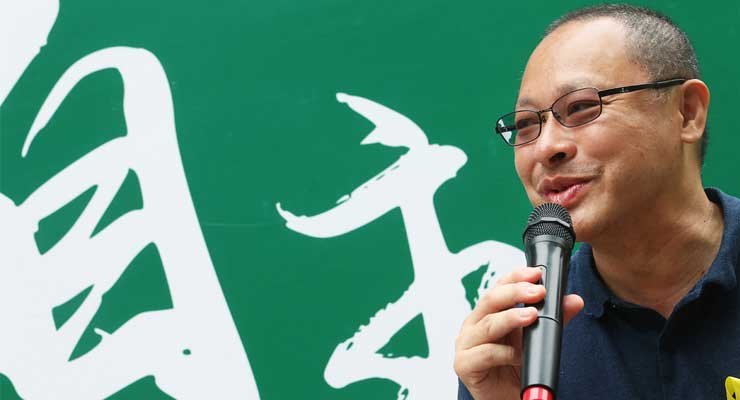
A night in mid-January of 2013
Lights are out. Lying in pitch darkness, my mind is still swiveling madly like a spinning engine. Before climbing to bed, I have decided the topic of the article for Economic Journal next week is Occupy Central. After completing the framework and the introduction, I plan to write the substantive part the next day as usual. When I turn off the computer, I still have no idea what to fill in at that very moment.
After the march on the New Year Day of 2013, a number of protesters occupied the street in Central ending in the arrest of Long Hair for unauthorized assembly. All of a sudden, a thought springs up in my mind: What happens if a lot more protesters occupy the streets of Central? C.Y. Leung, the newly selected Chief Executive is going to deliver his first policy address in the coming Wednesday. I don’t think he will dare to touch the issues of political reform as it is so controversial. He might want to first focus on some livelihood concerns with the hope of enhancing his popularity. We cannot let him go so easily.
 By putting these two considerations together, the idea of Occupy Central is born. As the promise of electing the chief executive in 2017 by universal suffrage has been made to Hong Kong, can the SAR government or the Central Authorities be coerced to handle the issue promptly by having tens of thousand people to block the streets of Central? With all these lingering in the head, I try to get back to sleep.
By putting these two considerations together, the idea of Occupy Central is born. As the promise of electing the chief executive in 2017 by universal suffrage has been made to Hong Kong, can the SAR government or the Central Authorities be coerced to handle the issue promptly by having tens of thousand people to block the streets of Central? With all these lingering in the head, I try to get back to sleep.
I remain sleepless. All of a sudden, the idea of civil disobedience springs up. The thought of coercion by protest is then transformed. It now becomes an awakening movement in which participants are willing to shoulder any legal responsibility out of the spirit of self-sacrifice. During the period of political reform in 2010, I submitted an article to the same column with similar content. Originally I thought I might have to submit a piece this time by just doing some repackaging on an old idea to meet the submission deadline.
No matter how hard I try, the idea of civil disobedience cannot be suppressed for the moment. Its eight elements all appear so clear and detailed: number of participants, opinion leaders, non-violence, persistence, bearing legal consequences, timing, pre-publicizing and target. I can’t help myself getting up from bed and lay them down point by point for I worry that I will lose them the next morning.
An essay formerly titled “A Lethal Weapon of Hong Kong Democratic Movement”, which is retitled by the editor as “Civil Disobedience: The Most Lethal Weapon” is finished in no time once my computer is turned on again. When the button “send” is pressed, I have no idea what will happen to it. What changes will this essay bring to Hong Kong? Will the Occupy Movement be carried out? Will the Occupy Movement last for 79 days? These questions never cross my mind. Nonetheless from now on my life is no more the same.
Alexandra Tawfik says
Amazing article! Welcome aboard Benny Tai!